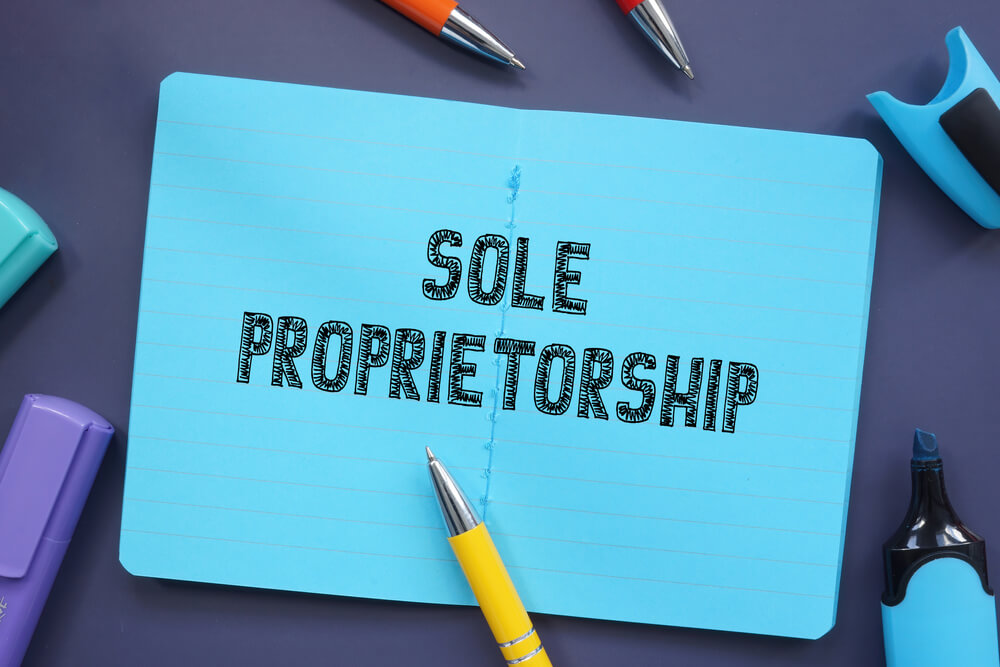Sole Proprietorship Registration
A Sole Proprietorship is the simplest form of business entity in India, owned and operated by a single individual. In a Sole Proprietorship, the business and the owner are considered the same legal entity. Here’s an overview of a Sole Proprietorship business in India:

Documents Requires For Company Registration
- Passport size Photograph
- Aadhaar Card
- Proof of Business Address
Packages
- Obtain PAN & TAN
- Shop Establishment Registration
- Obtain PAN & TAN
- Shop Establishment Registration
- MSME Registrations
- Obtain PAN & TAN
- Shop Establishment Registration
- MSME Registration
- GST Registration
- GST Compliance for One Financial Year
What is a Sole Proprietorship?
A Sole Proprietorship is the simplest form of business entity in India, owned and operated by a single individual. In a Sole Proprietorship, the business and the owner are considered the same legal entity. Here’s an overview of a Sole Proprietorship business in India:
1. Ownership
In a Sole Proprietorship, the business is owned and controlled by a single individual known as the proprietor. The proprietor has complete control over all aspects of the business, including decision-making, management, and operations.
3. Formation
Establishing a Sole Proprietorship is relatively simple and does not require formal registration with any government authority. The business can be started by conducting operations under the proprietor’s name or under a trade name, if desired.
5. Profit and Loss
The proprietor retains all profits generated by the business and bears all losses personally. Since the business and the proprietor are considered the same entity, profits are treated as the proprietor’s personal income and are subject to personal income tax.
7. Liability
One of the main drawbacks of a Sole Proprietorship is that the proprietor has unlimited personal liability. This means that the proprietor’s personal assets, including personal savings, property, and investments, may be used to satisfy business debts and liabilities in case of business losses or legal claims.
2. Legal Status
A Sole Proprietorship is not considered a separate legal entity distinct from its owner. The business and the proprietor are treated as one and the same in the eyes of the law. This means that the proprietor is personally liable for all debts, liabilities, and legal obligations of the business.
4. Capital
The proprietor typically contributes capital to the business from personal funds. There are no specific capital requirements for starting a Sole Proprietorship, and the business can be started with minimal investment.
6. Taxation
A Sole Proprietorship is not subject to separate taxation. Instead, the proprietor pays income tax on the business profits as part of their personal income tax return. The proprietor may also be liable to pay other taxes such as Goods and Services Tax (GST) if applicable.
8. Flexibility
Sole Proprietorships offer maximum flexibility and autonomy to the proprietor in decision-making and business operations. The proprietor can adapt quickly to changes in the market and make decisions without the need for consultation or approval from others.

Procedure for proprietorship Business registration
In India, there is no specific registration process required for starting a sole proprietorship business. Unlike other business structures such as companies or partnerships, sole proprietorships do not have a separate legal identity from the proprietor. However, there are certain registrations and licenses that may be required based on the nature of the business. Here’s a general overview of the steps involved in starting a sole proprietorship business in India
1. Choose a Business Name
Select a name for your sole proprietorship business. It’s advisable to choose a unique and relevant name that reflects the nature of your business.
3. Bank Account Opening
Open a bank account in the name of your sole proprietorship business. You will need to provide relevant documents such as identity proof, address proof, and business registration documents (if applicable).
5. Optional Registrations
While not mandatory, you may choose to register your sole proprietorship under the Micro, Small, and Medium Enterprises (MSME) Act to avail benefits such as priority lending, subsidies, and government schemes.
7. Compliance with Tax Laws
Ensure compliance with applicable tax laws, including filing income tax returns and GST returns, as per the prescribed timelines.
2. Business Licenses and Permits
Depending on the type of business you intend to start, you may need to obtain specific licenses and permits from relevant authorities. Common licenses include:
-
- Shops and Establishment License: Required for operating a business from a commercial premises.
- GST Registration: Mandatory for businesses with a turnover exceeding the threshold limit set by the government.
- Professional Tax Registration: Some states in India levy a professional tax on certain professions.
Other Industry-Specific Licenses: Certain industries may require additional licenses or permits, such as food licenses for restaurants (FSSAI Registration)or health licenses for healthcare-related businesses.
4. PAN and TAN Registration
Obtain a Permanent Account Number (PAN) for your business from the Income Tax Department. If applicable, apply for a Tax Deduction and Collection Account Number (TAN) for tax deduction at source.
6. Maintain Records:
Keep proper records of your business transactions, including income, expenses, assets, and liabilities. This will help in filing tax returns and complying with legal requirements.
8. Other Considerations
Depending on the nature of your business, you may need to comply with specific regulatory requirements, such as environmental regulations, labor laws, and intellectual property rights.
It’s advisable to consult with a legal or financial advisor to understand the specific requirements and regulations applicable to your sole proprietorship business based on its nature and location. While there is no formal registration process for sole proprietorships, obtaining necessary licenses and registrations will ensure legal compliance and smooth operation of your business.
Frequently Asked Questions
How is Sole Proprietorship a better option for me?
Sole Proprietorship is the best business form to choose if you want to begin your startup with limited funds and resources. Besides, it is the most feasible form of business if you want to execute your business plan with least legal compliances and minimum operational outlay.
How much time does it take to establish a Sole Proprietorship firm?
The process of registration of a Sole Proprietorship firm can be completed in 2 to 20 business days, depending upon the type of registration. This takes further time in case there is any delay in government approval.
What tax benefit can be availed under Sole Proprietorship?
The major benefit in a Sole Proprietorship business is that the trader is given concession in taxes. He is liable to pay tax at the individual tax rate, which is 10% and exempted from the corporate tax, i.e. 25%.
Why is Shop Establishment certificate essential while Sole Proprietorship registration?
In case you have to open a new Current account in the business name, you need to furnish the Shop Establishment certificate. Current account details are mandatorily required for setting up Sole Proprietorship.
Who undertakes the task of Sole Proprietorship registration?
The task of Sole Proprietorship registration is performed by the Registrar of Establishments.
Will you provide this service in my town?
Yes E-StartupIndia is an online platform serving all over India no matters wherever you are doing business all you need is internet connection on your mobile or desktop and we are ready to get your job done.
Do I need to physically present for the process?
No, You don’t need to be physically present for the process, E-StartupIndia is an online catering platform all you need is an internet connection in your phone/computer and the required documents with you and we can get the job done no matters even if you are present at the remotest location of India






